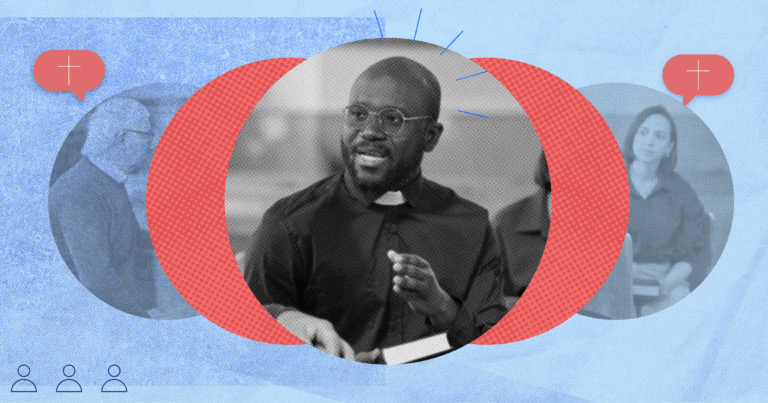Introduction
When we examine what ‘Evangelicalism’ is, we get different answers. My purpose here is to offer my own view of what we should mean by ‘Evangelical’ and to do so in as brief a way as possible. Much lengthier engagement with defining ‘Evangelical’ is widely available, but the following is my own suggestion. I would like to begin with a brief identification of issues arising in defining Evangelicalism and then offer a definition.
Identifying Issues
First, Evangelicalism has a history, and to define it requires historical understanding more than anything else. Many understand ‘Evangelical’ in a political context, since journalism is usually only interested in Evangelicals politically, as a kind of voting block. Behind this, of course, is a social block that stands for some things and opposes other things. Such ways of speaking about Evangelicalism have some validity, but they will not suffice for Evangelicals themselves, and they lack historical perspective. My definition will be historical.
Second, Evangelicalism has, in recent years, come to be defined theologically. It must be so defined. Yet, a theological definition is necessary but not sufficient. At issue here is whether Evangelicalism involves convictions only or whether it is also a movement. It is a movement, but what sort of movement is it? Just what is Evangelical activism?
Third, Evangelicalism is not only theological but also a spiritual movement. Specifically, Evangelicalism is an answer to ‘dead orthodoxy’. The Evangelical message begins with preaching the Gospel for conversion and continues with efforts at discipleship.
A Definition of Evangelicalism
I would define Evangelicalism as a tradition. This highlights the historical understanding, and it accepts that there are various dimensions of identity that this historical definition involves, not only theological. The ‘Evangelical Tradition’ is an orthodox tradition, a Protestant sub-group, a renewal movement, a missional movement, and a prophetic movement promoting social reform. I will unpack this a little and, while doing so, point out some of the pitfalls facing Evangelicals today.
An orthodox tradition. Evangelicalism is theologically and ethically orthodox. Evangelicalism holds to the Church’s doctrine of Scripture through the ages and to the theology that is grounded in Scripture. Already within Biblical authors, we witness a developing notion of a canon of Scripture that is taken as God’s revelation and as the final authority in all matters of theology and ethics. Evangelicals have valued the orthodox theological and ethical statements based on Scripture that developed in the Early Church over against heretical alternatives. They are, for instance, Trinitarian; believe that the One God created all that there is; believe that every person is a sinner in need of a Saviour; believe in Jesus’ virgin birth and incarnation, death on the cross for our sins, bodily resurrection from the dead, ascension into heaven, present reign as Lord, and future coming as judge; affirm that salvation is only in Jesus Christ through His shed blood and His justification of sinners and making them righteous; believe in the life-transforming work of the Holy Spirit (sanctification); affirm the importance of the Church; await the Second Coming of Christ Jesus and the resurrection from the dead; and hold to the ethics of the Bible. Thus, Evangelicals are not ‘revisionists’, seeking to revise orthodox teaching on these doctrines. Yet Evangelicals seek more than orthodoxy for the Church and for their own lives. They pick up the spirit of the monastic movement and mysticism in the Early Church and Medieval period, even if critical of its various characteristics. One of the challenges for Evangelicals is to remain historically conversant with its orthodox tradition, especially when theology and ethics ignore the Church’s history. Another challenge to orthodoxy comes from elite social pressure, such as when one does not want to appear exclusive or intolerant of other religions or wants to gain social honour by accepting current trends in the culture and context. This personal drive to acceptance and praise among an elite group undermines the unique Christian witness to society and culture.
A Protestant sub-group. Evangelicalism is Reformational. It is historically built upon the Protestant Reformation and its four streams of Lutheran, Reformed, Anglican, and Anabaptist groups. These four streams arose in the 16th century Protestant Reformation and were united in calling for the reformation of the Roman Catholic Church of the time. United in what this reformation entailed, they also had differences that produced the four sub-traditions. This unity and diversity explains the unity and diversity of Evangelicals in subsequent centuries. They together held to Scripture as the authoritative Word of God in all matters of theology and ethics, the Gospel of Jesus Christ, salvation by God’s grace through faith in Jesus and by means of Christ’s sacrificial death on the cross. The problem for Evangelicals is that their connection to the Reformation through mainline, Protestant denominations has suffered tremendously as those very denominations in the West have rejected Christian orthodoxy.
A renewal movement. Evangelicals call each believer and the Church to a deeper devotion to God, faith in Jesus Christ, and spiritual renewal of the Holy Spirit. Historically, this defining characteristic developed after the Reformation’s reformation of doctrine and the Church to avoid a ‘dead orthodoxy’. It arose in German pietism (Philipp Jakob Spener, August Hermann Franke), the Hernnhut Community, the Great Awakening (e.g., Johnathan Edwards), the revivals in Anglicanism leading to Methodism (John and Charles Wesley), mass preaching outside ecclesiastical structures and convention (George Whitfield, John Wesley), and subsequent revivals in various parts of the world. Church renewal entails doctrinal and ethical reform, the Church’s continuous need for renewal of its oversight, structures, worship, methods, meetings, and so forth, and a searching for the fullness of new life in Christ Jesus. The renewal of disciples of Jesus Christ entails true conversion of the heart, deeper devotion to God, a truer discipleship or following of Jesus, and a sincere seeking of the cleansing and renewing work of the Holy Spirit. This renewal is revivalist (conversion, sanctification, personal experience, evangelism) and activist (foreign mission work, and a prophetic voice and activism in society). One characteristic of Evangelicalism as a renewal movement was that Evangelicals existed in mainline denominations. However, these denominations have been declining since the 1960s in the West as they have lost their Christian orthodoxy. Evangelicals have moved out and either established Evangelical denominations or simply remained non-denominational. While separating from heretical teaching is right and good, they now struggle to remain a renewal movement. Moreover, when Evangelical churches restructure into seeker services that want to be less ‘churchy’, they suppress their Evangelical witness, undermine ecclesiology, and weaken their teaching and discipleship purposes.
A missional movement. Evangelicalism is missional. The Church’s missional concern from its earliest days was renewed with great fervour along with Evangelicalism’s emphasis on renewal. The centre of mission is the Gospel (Bible translation, evangelism, church planting, nurture in the faith, and theological education), although this mission work often expands into other areas of charity and development (holistic mission). However, this does at times pose a challenge the initial, evangelistic focus, confusing missions with the Church’s charitable work. As a missional movement, Evangelicals cross denominational lines, often setting up mission societies that are broader than one particular denominational tradition and developing churches and denominations in foreign lands that have differences from the original denominations. In our day, the ‘foreign missions’ emphasis has broadened as most countries have a Christian presence and some of those countries have vibrant mission programmes in their own right. This good development is also a problem: the missional identity of the Evangelical churches is challenged as it now needs to rethink missions and therefore its identity as a missional movement. A wrong way to do this is to imagine ‘mission’ as anything the Church does, confusing charity and development with Gospel-centred mission work. Another wrong way is to imagine ‘mission’ as anything done in a foreign or cross-cultural setting. Mission work must be Gospel-centred, and it must involve a world perspective on what needs to be done to take the Gospel to all peoples. The increase of independent, non-denominational Evangelical churches has meant a loss of mission by and large. A connectivity between churches is needed to rise to the task of mission and not to duplicate or create conflict in missional efforts.
A prophetic movement promoting social reform. Evangelism speaks God’s truth to government, society, and culture and actively engages in social reform. This prophetic voice was raised in various ways, perhaps originally most notably in opposition to the slave trade. Prophesy is often focussed on matters of life—abortion and euthanasia—today. At times, this prophetic voice is misdirected in trying to speak up on social issues of our times, especially when calls for justice are confused with the World’s understanding of justice, creating an unhealthy Progressive Evangelicalism. This problem has arisen in recent times when Woke culture has defined ‘social justice’ and Evangelical institutions have succumbed to this error, particularly in areas of personal (e.g., gender, marriage, family, sexuality) and social (diversity, equity, and inclusion) ethics. Some Evangelicals have become soft or weak in theology and personal ethics in favour of a greater focus on social activism.











 English (US) ·
English (US) ·